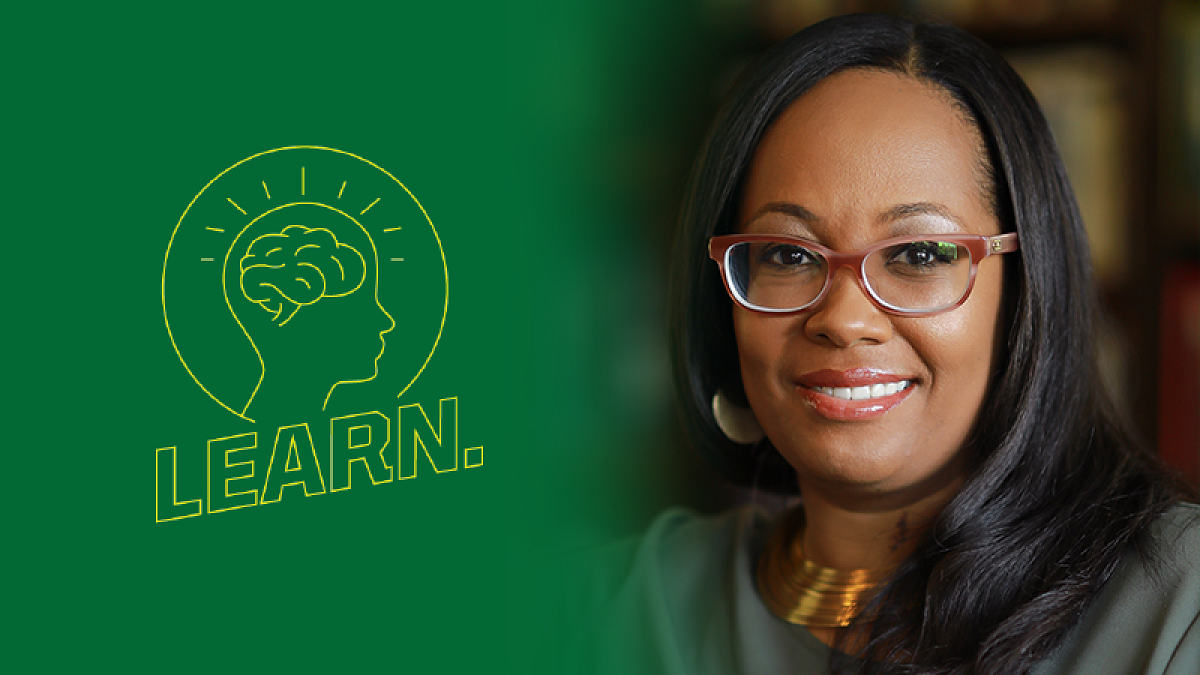A novel written by a Eugene native and University of Oregon administrator has been selected for the second segment of this year’s Common Reading program.
“This is My America,” by Kimberly Johnson, assistant vice provost for advising in the Division of Undergraduate Education and Student Success, has been chosen as part of the Common Reading Program’s three-part theme, “Listen. Learn. Act.”
As an author, educator and longtime leader for social justice, Johnson has maintained a level of civic engagement throughout the Eugene community while also mentoring Black student activists and leaders.
“To me, it’s about representation,” Johnson said.
Common Reading evolved this year in response to the Black Lives Matter movement and requests from campus colleagues to focus on Blackness, the Black experience and dismantling racism, said Julie Voelker-Morris, who directs the Common Reading program.
During fall term, the “Listen. Learn. Act.” theme included listening to the podcast of the The New York Times Magazine 1619 Project, the concept of Pulitzer Prize-winning journalist Nikole Hannah Jones. Johnson’s book will be featured for winter term, while the spring term will include a series of events for students and the UO community around racism.
The idea is to address historical contexts for racism and biased policies in order to recognize systemic patterns of inequality and construct more inclusive and viable futures for marginalized people, she said.
By selecting Johnson’s novel, the program aims to elevate works by Black authors that build a greater understanding of the full heritage of underrepresented communities and includes characters who, despite racial injustice, continue with courage, contributions and creativity.
Provost and Senior Vice President Patrick Phillips and Vice Provost Doneka Scott of the Division of Undergraduate Education and Student Success have asked academic leaders from throughout campus to commit to embedding this year’s Common Reading selections into courses and co-curricular activities in intentional ways for all students, faculty and staff.
Penguin Books will publish a special UO version of “This is My America” that will be distributed to all students living in residence halls for winter term. Faculty and staff members can request copies of the book for use with students in classes, workshops or other settings. Interest in using the book with students can be indicated using a Qualtrics form.
“Johnson’s book asks readers to learn about the individuals and groups who benefit and who suffer from the prison-industrial complex and mass incarceration systems, the weighing of one freedom in the U.S. Bill of Rights over another, and the valuing of economically privileged voices over those who are less so,” Voelker-Morris said.
As a child, Johnson was an avid reader who frequented the Eugene Public Library to augment her collection of books. Yet she couldn’t recall ever having read a story written by a Black author with a Black main character until her collegiate experience.
“I wanted readers to see a remarkable friendship, a strong family and a relentless, determined Black main character who was unapologetic and who takes up space regardless of how others view her,” Johnson said.
Her debut novel, a finalist for Pacific Northwest Booksellers Association 2021 Book Awards and a semi-finalist for the 2020 Goodreads Choice Awards, was written to give students of color an opportunity to see themselves in the pages of a book.
Born out of the Black Lives Matter movement, Johnson said her novel was sparked by the cry for justice after several Black Americans were slain at the hands of police across the country. But it wasn’t those deaths alone that drove her creative process. The experiences of generations of Black people who have been disproportionately targeted also had an effect.
“I wanted to use my voice for inspiration,” she said.
Johnson hopes to leave readers wanting to dig deeper and inspire the next generation of leaders.
“They are the ones who give me hope in our future,” she said. “They are the ones who are shaping the conversation to explore things that we almost thought were impossible to resolve.”
As part of the UO’s 2020-21 African American Workshop and Lecture Series in February, Johnson will discuss the inspirations of her novel, delving into how racial bias in our criminal justice system leads to mass incarceration and excessive punishment.
“From the conception five years ago to now, it really has come full circle,” Johnson said. “We are reaching students, talking about Black Lives Matter and the even larger discourse on race in America.”
—By Cheyenne Thorpe, University Communications


